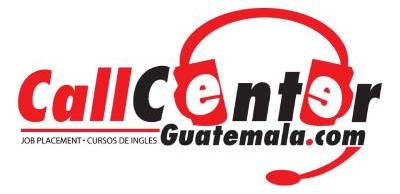B2 Oral Proficiency Assessment: Real-Life Scenarios and Reflective Responses 1
1. 3rd Conditional
- Question: Think of a decision you made in the past that you regret. What would have happened if you had made a different choice?
- Follow-up: How do you think your life would be different now if you had made that choice?

“I regret not studying harder when I was in high school. If I had studied harder, I would have gotten into a better university. My career would probably be different if I had made that choice.“
“If I had made that choice, I think I would have a more stable job now. I might also feel more confident about my future. Maybe I would even be living in a different city, with more opportunities.”
2. Past Perfect
- Question: Tell me about a time when you arrived somewhere and something had already happened. Describe the situation.
- Follow-up: What did you feel when you realized what had happened before you arrived?
“Once, I arrived at my friend’s birthday party, and everyone had already left because I was running late. I was really disappointed because they had planned a surprise, but I missed it. I wished I had arrived earlier so I could join in the celebration.”
“When I realized that everyone had already left, I felt really disappointed. I had been looking forward to the party, so it was frustrating to miss it. I felt like I had wasted an opportunity to celebrate with my friends.”

3. Phrasal Verbs
- Question: Describe a difficult situation you went through and how you “got over” it.
- Follow-up: Are there any habits or activities that you “gave up” recently? Why?

“Last year, I went through a tough breakup. At first, it was hard, but I got over it by focusing on my hobbies and spending time with friends. Slowly, I moved on and felt better.”
“I recently gave up drinking coffee because it was affecting my sleep. I also cut back on sugary snacks since I wanted to improve my health.”
4. Present Perfect Progressive
- Question: What is a goal you’ve been working towards recently? How long have you been working on it?
- Follow-up: What have you learned or achieved so far by working on this goal?
“I’ve been working towards improving my fitness recently. I have been exercising for about six months now, and I’m starting to see some good results.”
“By working on this goal, I have been learning how to stay consistent and push myself. I have also been feeling more energetic, and I’ve noticed I can run longer without getting tired.”

5. Should have, Could have, Would have
- Question: Think about a recent event. What could you have done differently to change the outcome?
- Follow-up: Is there something you should have done but didn’t? What was it, and why didn’t you do it?

“Last week, I missed an important meeting. I should have set a reminder on my phone. I could have asked a colleague to let me know when it started, too. If I had been more prepared, I would have made it on time.”
“I should have finished my project earlier, but I kept procrastinating. I didn’t do it because I thought I would have more time, but then other tasks came up, and I ran out of time.”
6. Future Progressive Tenses
- Question: Where do you see yourself a year from now? What will you be doing?
- Follow-up: Describe what you will be doing in five years’ time. What do you hope will be different?
“A year from now, I will be working at a better job, and I will be studying for my professional certification. I hope I will be living in a new city and exploring new opportunities.”
“In five years, I will be managing my own team at work, and I will be traveling to different countries. I hope I will be living a more balanced life and will be focusing on things that make me happy.”

7. Connecting Ideas
- Question: Describe a project you worked on that had multiple steps. How did you connect each step to the next to complete it?
- Follow-up: When you encounter a problem, how do you typically connect ideas to find a solution?

“I recently worked on a website design project. First, I started by researching what the client needed, and then I moved on to creating a layout based on their goals. After that, I began designing each page, making sure to keep the style consistent. Finally, I tested everything to make sure it all worked well before launching the site.”
“When I encounter a problem, I start by identifying the main issue, and then I think about similar situations I’ve faced before. After that, I break down the problem into smaller parts so I can tackle each part step-by-step. Finally, I combine the solutions for each part to solve the entire problem.”
8. Gerunds and Infinitives
- Question: What is something you enjoy doing in your free time? Why do you enjoy it?
- Follow-up: Is there anything you plan to start doing soon, and why did you decide to do it?
“In my free time, I enjoy going hiking because it helps me to relax and to stay active. I also like to explore new trails and to take in the scenery.”
“I plan to start learning a new language soon because I want to travel more and to connect with people from different cultures. I decided to do this to broaden my experiences.”

9. Passive Sentences
- Question: Describe a famous event in your country. Who was involved, and what was done?
- Follow-up: Tell me about a time when you were given some important information. How was it shared with you?

“In my country, the construction of the Antigua Guatemala Cathedral is a famous achievement. It was built by Spanish colonists in the 1500s, and it was designed to reflect Spanish architectural styles. Over the years, it has been damaged by earthquakes but has been restored multiple times to preserve its history.”
“I remember a time when I was given important information about a job opportunity. It was shared with me through an email, and the details were explained clearly so I would understand the requirements.”
10. Comparisons
- Question: Compare your current job or studies to something you did in the past. What are the main differences?
- Follow-up: Do you think life is easier or harder for young people today compared to 20 years ago? Why?
“My current job is much more challenging than my last one. I have to work longer hours, but it’s also more rewarding. Compared to my past studies, what I’m learning now is more practical and directly related to my career. The projects now are more complex than those I used to do.”
“I think life is harder for young people today compared to 20 years ago. There’s more competition for jobs, and the cost of living is much higher now. On the other hand, technology has made some things easier, like accessing information, but overall, I believe the challenges are greater today.”

11. Noun Clauses
- Question: What do you think makes a person successful? Explain your answer.
- Follow-up: Why do you believe it is important for people to continue learning throughout their lives?

“I think what makes a person successful is their ability to stay motivated and focused on their goals. Whether they face challenges or not, successful people keep pushing forward. I believe that having a strong work ethic and that being adaptable are also important qualities.”
“I believe that it’s important for people to continue learning because it helps them grow and stay relevant. What we learn keeps us adaptable to changes in the world, and I think that lifelong learning can make life more interesting and fulfilling.”
12. Using Wish / If
- Question: If you could change something about the past year, what would you change, and why?
- Follow-up: What do you wish you could be doing right now if you weren’t here?
“I wish I had spent more time focusing on my health last year. If I could change something, I would have made a better effort to exercise regularly and eat healthier. I feel that if I had done this, I would feel much better now.”
“I wish I could be traveling right now, exploring new places and learning about different cultures. If I weren’t here, I would be visiting somewhere exciting, maybe a beach or a historical city.”

Tips for Assessment:
- Comprehension: Listen to how well they understand and respond to each question. Are they able to grasp the scenario and respond appropriately?
- Fluency: Take note of their ability to speak continuously without frequent pauses or searching for words.
- Grammar: Evaluate their use of complex structures, particularly those you’ve covered, such as conditionals, passive voice, and noun clauses.
- Vocabulary: Pay attention to their range and accuracy of vocabulary, including any phrasal verbs or advanced expressions relevant to each topic.
- Pronunciation: Listen for clarity, intonation, and how naturally they produce sounds and stress patterns in English.
These questions should give you a good sense of each student’s level and highlight areas where they’re excelling or might need more support as they move towards C1.

